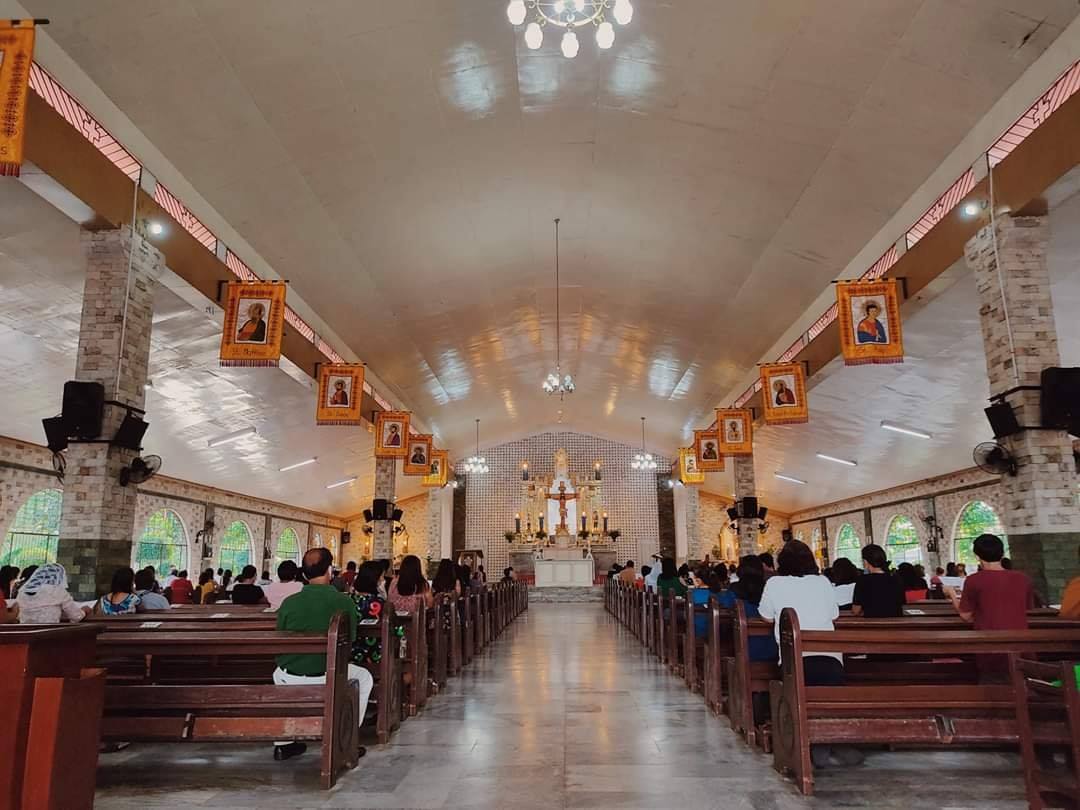Explore by Municipalities and Cities
Bahay Hilarion Alquizola | Hilarion Alquizola House
Bantayog Ng Santa Ana
Gusaling Gabaldon Ng Paaralang Sentral Ng Barili | Barili Central School Gabaldon Building
Hospisyo Ng San Jose Ng Barili | Hospicio De San Jose De Barili
Obelisk Ng Gorordo | Gorodo Obelisk
Parish Church Of Santa Ana Of Barili
Bahay Ni Don Jose Tio Bonpua, Sr. At Ang Museo Ng Banal Na Sining | Don Jose Tio Bonpua, Sr. House And The Museum Of The Sacred Art, Inc.
Balwarte Ng Bonbon | Bonbon Baluarte
Bantayan Sa Poblacion | Poblacion Baluarte (Watchtower)
Church Plaza
Cuartel Structure
Daanglungsod Baluartes (Watchtowers)
Daanglungsod Estaca - Kuta | Daanglungsod Estaca - Fortress
Daanglungsod Fortress
Immaculate Conception Parish Church
Looc Watchtower
Nueva Caceres Elementary School, H.E. Building
Oslob Cemetery Chapel
Oslob Cemetery Walls And Gates
Oslob Central Elementary School Including Admin Building, H.E. Building, And Acacia Trees
Oslob First Catholic Cemetery
Oslob Prayer Chapel
Pamanang Liwasang | Bayan Municipal Heritage Park
Parish Church Of The Nuestra Senora De La Inmaculada Concepcion Of Oslob
Pungtod Cemetery
Saint Joseph Shrine And Church Plaza
Saint Joseph The Carpenter Parish Church
Saint Mary's Academy Old Building
Simbahan Ng UCCP | UCCP Church
Waiting Chapel (Prayer Room)
Bantayog Ng Mga Pambansang Bayani | National Heroes Monument
Bantayog Ng Tres Alinos | Tres Alinos Monument
Kinalalagyan Ng Paaralan Ng Silangang Visayas | East Visayan Academy Grounds
Kolehiyo Ng Lungsod Ng Talisay | Talisay City College
Liwasan Ng Kalayaan At Bantayog Ng Pagdaong | Liberation Park And Landing Monument
Museo Ng Canton | Canton Museum
Parish Church Of Santa Teresa De Avila, Talisay, Cebu
Sementeryong Bayan Ng Poblacion | Poblacion Public Cemetery
Sementeryong Bayan Ng San Jose Manggagawa | Saint Joseph The Worker Public Cemetery
Parish Church of Santiago Apostol of Compostela

Photo of the facade of Church of Santiago Apostol of Compostela at night. Archdiocesan Shrine of Santiago Apostol De Compostela (FB Page), 20 March 2020 https://www.facebook.com/ArchdiocesanShrineOfSantiagodeCompostela/photos/a.300776713847715/594592711132779

Photo of the front and left side of the Church of Santiago Apostol of Compostela. Archdiocesan Shrine of Santiago Apostol De Compostela (FB Page), 31 May 2020 https://www.facebook.com/photo?fbid=639775766614473&set=pcb.639777963280920

Photo of the interior of Church of Santiago Apostol of Compostela. Archdiocesan Shrine of Santiago Apostol De Compostela (FB Page), 16 July 2020 https://www.facebook.com/ArchdiocesanShrineOfSantiagodeCompostela/photos/670003330258383
Official Name: Archdiocesan Shrine of Santiago Apostol de Compostela[1]
Classification Status: Classified Historic Structures (covering all Colonial Churches and other Houses of Worship, per NHCP Res. No. 3, s. 1991)[1]
Town or City: Compostela
Year Declared: 1865[1]
Description:
The Archdiocesan Shrine of Santiago Apostol de Compostela, also known as St. James the Apostle Church or Compostela Church, is a Roman Catholic Church in Compostela, Cebu.
History
Declared a parish on July 21, 1865, it separated from the mother parish of Danao and appointed Fr. Manuel Alonzo as the first parish priest. The stone church was completed in 1866. The town, established in 1863 and named after a Spanish city believed to be the resting place of St. James the Elder, received archdiocesan shrine status on July 24, 2007, under Cardinal Ricardo Vidal.[2]
Architecture
Compostela Church is dedicated to the veneration to its patron, the apostle St. James the Elder, with an unadorned 19th-century facade. The entrance is a porte-cochere with Tuscan pilasters, and above it, an inscription reads, "Sr. Santiago Apostol de Compostela, Año de 1866" (St. James the Elder and Apostle, Year 1866). The side aisles and recessed pediment make up the facade's rest. The upper wings slope toward pilasters flanking the entrance door, terminating in three-bodied pinnacles. The distinctive feature is the elaborate, tapering, linear cornices on an otherwise plain pediment, pierced by a rose window. The puerta mayor is a massive arched door, flanked by narrower arched entrances.[2]
Source:
1. https://ncca.gov.ph/philippine-registry-cultural-property-precup/
2. https://www.theoldchurches.com/philippines/cebu/compostela/archdiocesan-shrine-of-santiago-apostol-de-compostela-cebu/


